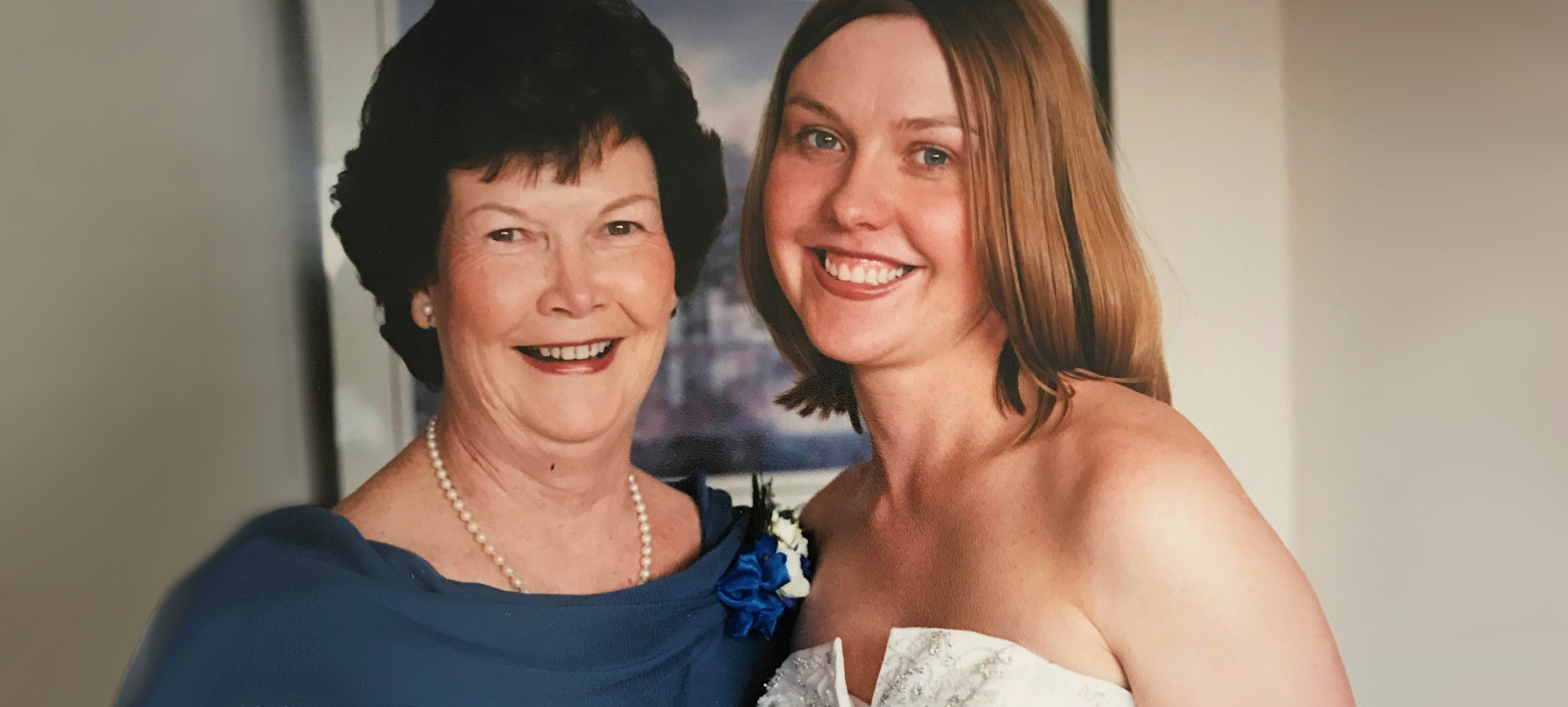17 Oct 2022

HEIDI DOUGLASS | h.douglass@unsw.edu.au
After losing her Mum to dementia in May 2020, Francesca Wood has a vision for society to address dementia the way we approach cancer, and for people to take their brain health as seriously as their physical health.
Following the first signs, it took nearly five years for Mrs Helen Reading to be diagnosed with vascular dementia.
According to Francesca, there was initially a lot of denial that anything was wrong, despite all signs pointing towards dementia.
“Watching the essence of Mum slowly disappear and not recognising me or my two daughters broke me,” says Francesca. “Dementia robs everyone – not just the person living with the condition.”
When Francesca reflects on her Mum’s passing, she recalls feeling a wave of relief that she was released from the horror she must have been experiencing as a result of her memory loss.
Knowing she was having to navigate what must have seemed like a foreign world was very upsetting.
Francesca Wood
Helen Reading was a woman of strong Catholic faith with a generous sense of community. She was highly regarded and loved by her parish as well as her family. Francesca says that she has vivid memories of her love of going to the ballet as a child – a tradition Francesca has continued with her own children.
Francesca, who is the Head of Reward, Asia Pacific at bp in Melbourne, acknowledges that her loss has bolstered her drive to do everything she can to reduce her own risk of dementia, as well as play her part in changing society’s view of brain health.
“I’d like to see society talk about dementia the way we talk about cancer – that it is not something to ignore but rather proactively approach better brain health from a young age – and collectively recognise the need for greater philanthropic support for this area of research.
“The more we talk about it, the more we take away the stigma of the disease.”
There are currently more than 487,000 Australians living with dementia, with up to 15-30% of those diagnoses being vascular dementia.
According to Professor Perminder Sachdev, Co-Director of the Centre for Healthy Brain Ageing (CHeBA), research into vascular cognitive impairment and dementia has lagged behind that of Alzheimer’s disease research. CHeBA is seeking to remedy this through a research strategy that hopes to meet the promise of vascular dementia as a truly preventable dementia.
“I make a concerted effort to look after the health of my brain with a focus on healthy food, being socially engaged, limited alcohol consumption, regular exercise and continually challenging myself to learn new things,” says Francesca.
I would love to be able to share with Mum that I’m an advocate for CHeBA’s research, and that I’m actively seeking out and implementing preventative measures for myself.
Francesca Wood
Francesca would also love to tell her Mum she’s happy, with a very supportive husband, daughters who are thriving and a successful career that she enjoys.
“I’m very grateful to CHeBA who are doing so much valuable work."
“Research gives us valuable insights and information we can use as a springboard for solving this highly complex disease."
“I have a mantra for when things are hard and seem impossible, which is ‘I know it is hard but we are moving forward in the right direction albeit slowly. If it was easy, we would have already solved it. Just keep the faith.”
Dementia is vastly under-funded, relative to cancer and heart disease, even though the disability caused by dementia in the older population is much greater. We know that research is the key, and we need a quantum leap in investment to meet these challenges. CHeBA is perfectly placed to meet the challenge.

Your support of this Appeal will have a direct impact on CHeBA’s critical research and help pave the way towards a brighter future for generations to come.


